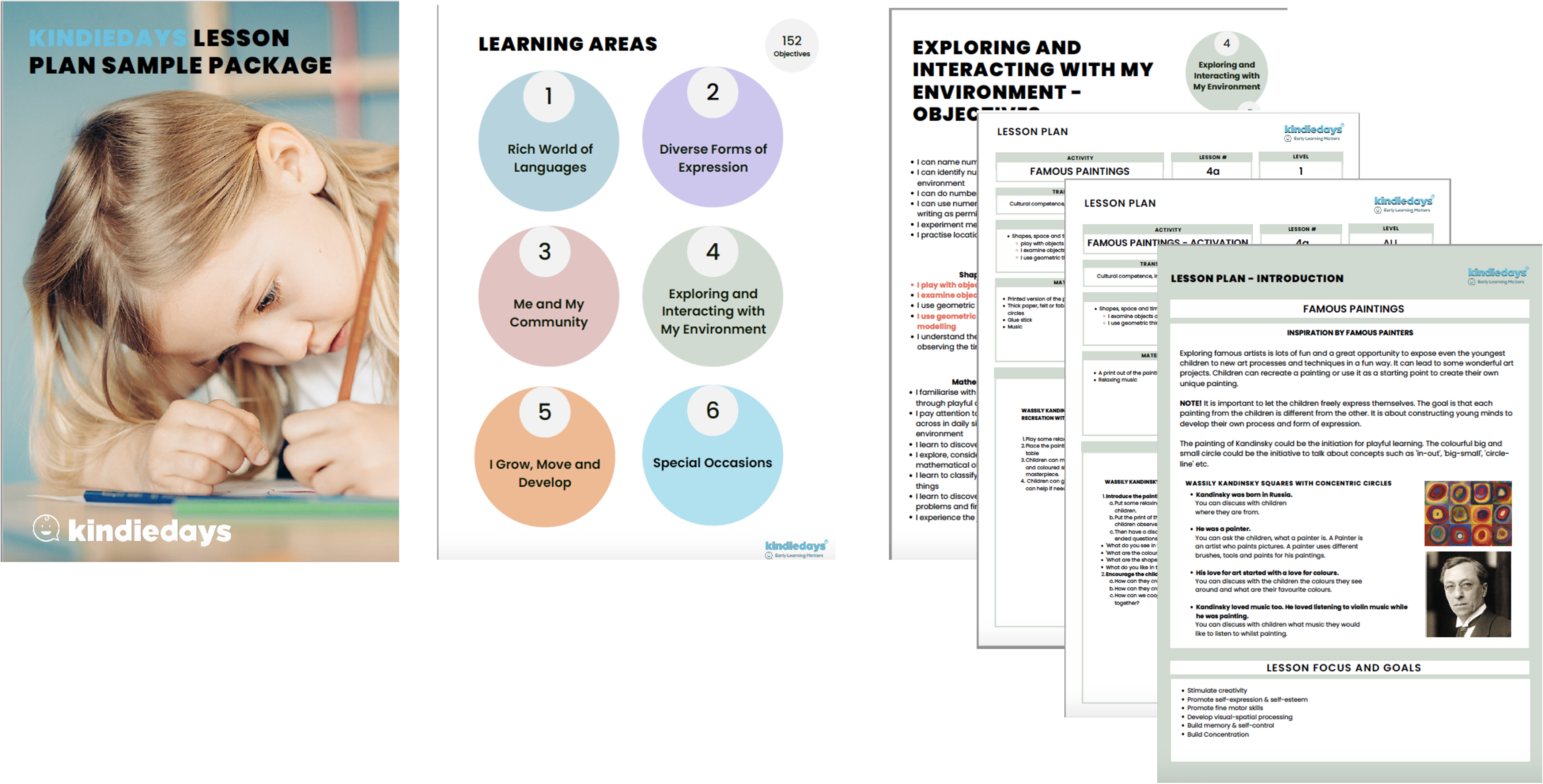It is time to take a look at all the learning areas one by one. This week we focus on the second one, Diverse forms of expression! In this post, you will find out why this learning area is important for children's development and what learning objectives are included in this learning area.
As a surprise gift, you will get one free lesson plan that includes an activity based on experimental learning. The activity is planned by Kindiedays lesson plan expert Stella Giota to match this learning area's objectives.

Freedom of expressing oneself
The purpose of early childhood education is to support children in expressing themselves holistically and in a goal-oriented way. When children are comfortable with expressing themselves it also shows and keeps on developing in their play. Self-expression is a wide topic, children are encouraged to express themselves
verbally, bodily, visually, musically, artistically...
According to Helsinki City's curriculum in early childhood education, self-expression and learning are processes that include: experimentation, exploration, practicing different stages of creating things, and documenting those stages. Every child’s personal expression is supported with sufficient time and space.
The expression can be anything from painting to dancing or playing an instrument - and many more things! In this learning area, children can learn for example about colors, shapes, materials, art techniques, creativity, fine motor skills, moving to music,
playing with (body) instruments, singing, crafts, sculpting, and sewing.
By practicing all these amazing and practical expressional skills, children also learn about the process of doing things; what it means to plan, work, assess, and develop their own ideas.
Are you an educator? Enhance children's learning environment with Kindiedays
Learning objectives
Each Learning Area has its own objectives that work as a tool for educators' planning and assessment process. Below, you can find all the Learning Objectives (32) of the Diverse forms of expression learning area:
.png)
.png)
.png)
